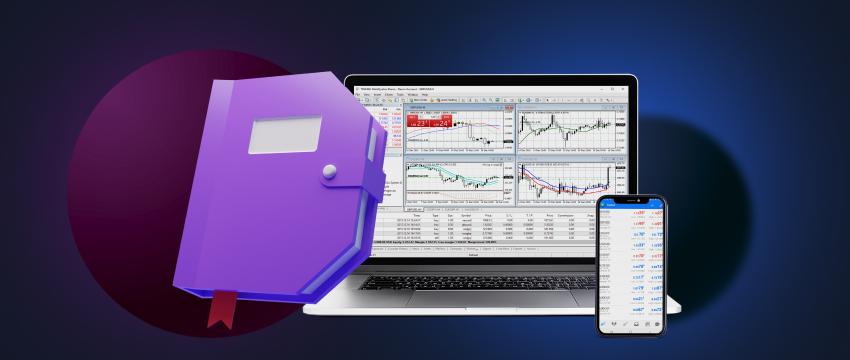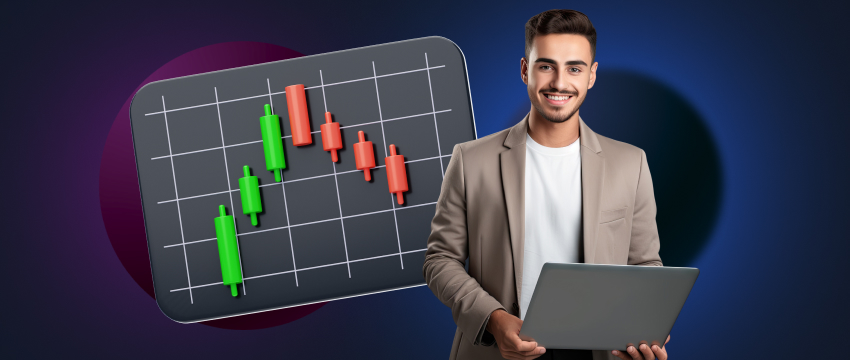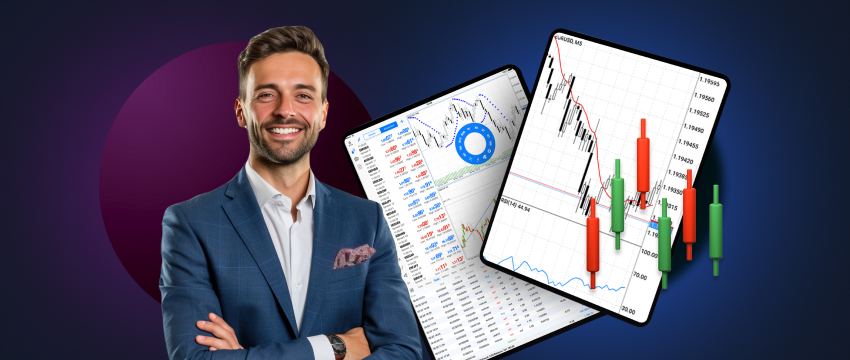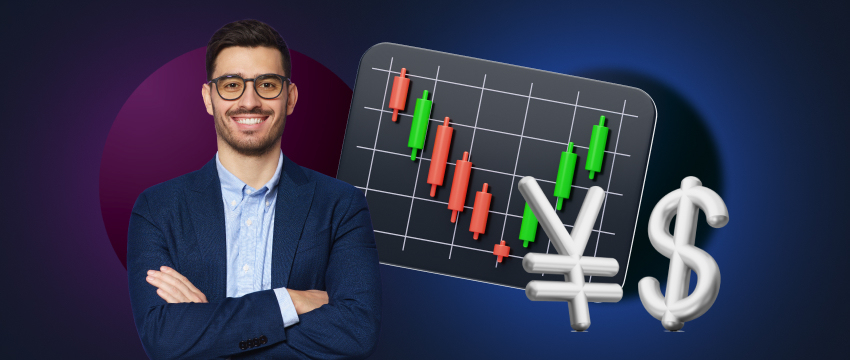Forex trading is undoubtedly an exciting means to dabble in what is the world’s largest financial market that sees trillions of dollars change hands every day. As exciting as it is, however, the forex market is also highly volatile, with aggressive price fluctuations that are difficult to manage without the proper expertise, knowledge, or skills.
So how does one acquire the capabilities to engage in forex trading? How does one learn more about buying and selling currencies on the global market? In this blog, we’ll explore the steps you can take to become a better-informed forex trader, increasing your potential for making gains.
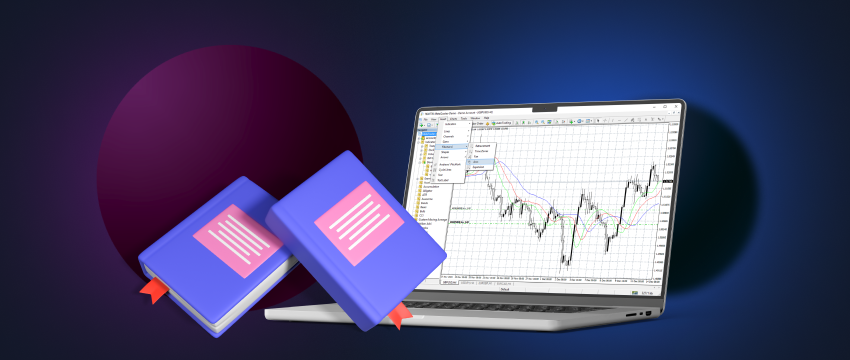
Acquiring a forex trading-related education
Today’s most successful traders are in all likelihood well versed in forex fundamentals. They’ve acquired this knowledge through practice, staying informed on current news and events, and through information. But how is this information acquired?
Where does one find it? The internet offers numerous resources to learn about the foreign exchange market and le trading de devises. These resources come in various formats, including articles, blogs, videos, podcasts, webinars, et seminars.
Interestingly, many are available for free or at minimal cost, making trading-related education accessible to almost every trader, even those with a limited budget.
In addition to what’s available all across the internet, forex brokers are another great source of trading insights. Many offer specially curated learning materials to their traders, to help them become more skilled and proficient in trading currencies.
T4Trade, for instance, offers its own Académie where traders can access almost all the aforementioned resources, ensuring they gain the insights needed to boost their expertise. And this leads us onto our next point, which is choosing a reliable forex broker.
Other trading tools essential for learning
In addition to conventional educational resources, there are a variety of trading tools that exist that complement the entire learning process. Some of the most popular include:
- Calendrier économique: provides essential real-time, updated macro-economic data for more accurate trading decisions. This includes information like central bank announcements, employment reports, GDP releases, interest rates, and more.
- News sources: by staying updated with reliable global news, forex traders can better prepare for events that may impact the forex market and drive currency prices.
- Trading calculators: for beginner traders, calculators offer a way to learn more about pip value, margin requirements, and leverage. They also help to determine theoretical profit and loss, and highlight potential risks inherent in a particular trade.
Select a forex broker
Becoming a strategic forex trader is just as much about learning as it is about the trading experience itself. This is largely driven by your choice of broker.
Let’s not forget, your CFD broker will be a resource in itself to gather more knowledge and information from about forex trading and the fundamentals of the forex market. Additionally, the CFD broker will also be responsible for providing you with the trading platform through which execution of trades will occur.
This requires accessibility to a plateforme de trading that caters to the needs of all types of traders. One that is user friendly, offers advanced analysis tools for d'analyse technique et fondamentale, automated ou algorithmic trading functionality, etc. One such platform is MetaTrader 4 (MT4), probably the most popular trading system in the world used by millions of traders everywhere.
Then there is also the issue of high-quality customer support. You’ll want to choose a broker with responsive and helpful customer support. A multilingual team of people who can complement the learning component of trading by answering the most frequently asked questions in a useful (and accurate) way.

Ouverture d'un compte de trading démo
As we just mentioned, a demo trading account is probably one of the most essential learning tools in trading. While resources like blogs, podcasts and videos offer awesome insights, a demo account provides practical experience. It allows you to practice trading in a simulated trading environment that pretty much mimics real life trading and market conditions.
Using virtual funds, the demo account allows you to deploy different trading strategies, enter and exit trades, and record outcomes. It also allows you to learn how to use technical analysis, and to become familiar with charts, indicators, and signals – all of which are crucial components of forex trading.
Keep in mind that a demo trading account offers something of value to both beginner traders and professionals. For someone just diving into forex trading, the demo account offers a form of education in that you learn through doing, until you’ve acquired the confidence and skills needed to move to live trading. For the more experienced trader, a demo trading account allows them to practice even the most complex trading strategies, gage outcomes, and make adjustments to their trading plans, if and when required.
Building a forex trading plan
A trading plan establishes the framework for how you will trade. It outlines your goals, risk tolerance, trading strategieset rules by which you will enter and exit positions. But why is a trading plan an essential part of learning forex trading?
- It provides a structured, disciplined, and systematic approach to trading for beginners. Who might otherwise feel overwhelmed by the vast amount of information and potential strategies in forex trading.
- It serves as a benchmark for evaluating performance, allowing traders to compare actual results. Against planned outcomes, and helping to identify strengths and areas for improvement. This feedback loop is so vital for learning and development.
- It offers a way for a trader to learn how to implement proper risk management techniques. To safeguard their capital and minimise losses.
- It reduces stress and anxiety associated with trading. When decisions are planned in advance, traders are less likely to panic. When faced with a volatile market, leading to more rational and strategic decision making. It therefore helps them to learn how to manage their emotions in a more effective manner.
Trading psychology
Trading psychology is crucial in learning forex. This is because of its impact on decision making and ultimately, trading performance. Other key reasons that make trading psychology a fundamental part of the learning process:
- It offers a way to learn emotional control. Emotions are powerful, enough so that they can lead to irrational decisions. This includes fear which can see traders exiting traders sooner than necessary, or greed that may leave to excessive trading. Having the ability to control your emotions will ensure a more rational approach to trading, rather than one driven by feelings.
- An optimal trading psychology helps in objectively analysing and learning from mistakes without being paralysed by them.
- Strong trading psychology nurtures emotional resilience which is necessary for ongoing development and improvement.
- It increases the likelihood of trading success by teaching emotional stability and regulation, mitigating the risk of burnout, or quitting.
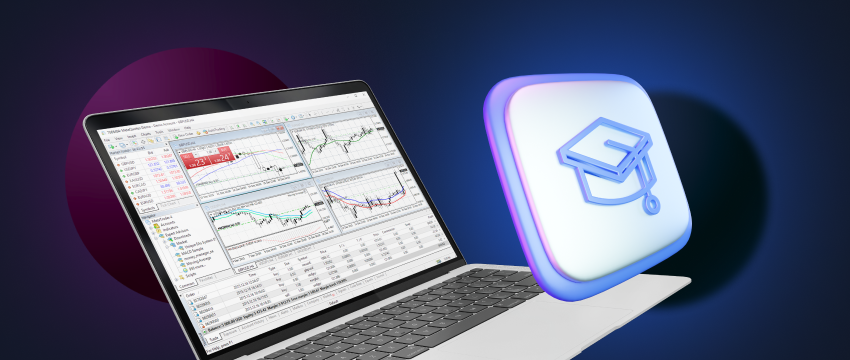
Forex trading with T4Trade
T4Trade is an award-winning broker that continues to gain popularity among global traders. This is attributed to its top-tier, 24/5 multilingual customer support team, cutting-edge trading platforms, and flexible trading conditions.
The T4Trade Academy is a great resource for traders looking to learn more about forex fundamentals. A variety of videos, podcasts, eBooks, webinars, and videos-on-demand are curated by inhouse specialists, catering to all types of traders.
Les traders de T4Trade ont également accès à plus de 300 instruments de trading sur 6 classes d'actifs, un effet de levier flexible, des spreads étroits, une exécution rapide et des options pratiques de dépôt et de retrait. Les traders peuvent également choisir parmi plusieurs comptes de trading qui correspondent le mieux à leurs besoins et préférences individuels.
CLAUSE DE NON-RESPONSABILITÉ : Ces informations ne sont pas considérées comme des conseils ou des recommandations en matière d'investissement, mais plutôt comme une communication commerciale.
